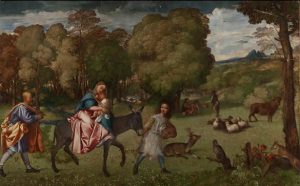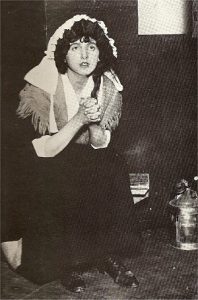Last month I was delighted to be involved in the Thomas Hardy Society’s ‘Woodlanders Study Day’ at Dorchester’s Corn Exchange, held in association with the University of Exeter’s Centre for Victorian Studies. It was a chance to talk about the digitisation project but it was also wonderful to immerse myself as a student and listen to the key note lectures and various papers about The Woodlanders. If you missed the event, a full programme can be found here and you will soon be able to view all of the talks on YouTube.
Ahead of the study day, Beth and I transcribed some of the letters in the collection that relate to The Woodlanders (which was originally published in serial form in 1886 and in book form in 1887). This correspondence includes: advisory letters from the serial editor at Macmillan’s Magazine Mowbray Morris; congratulatory letters from Hardy’s friend and critic, Edmund Gosse; a note of thanks from Gertrude Bugler, and other letters pursuing lines of inquiry in relation to the text as late as the 1920s. Below I have recorded a few notes on the letters from Morris, Gosse and Bugler as they might prove particularly useful to researchers and students. However, I’m sure that as we work through more of the archive there will be a far greater number of letters that offer insight into how Hardy’s contemporaries engaged with this novel over the course of time.
Mowbray Morris’ letters during the serialisation serve as a reminder of the bowdlerisation Hardy’s novels underwent. Morris wrote in September 1886 to advise Hardy not to “bring the fair Miss Suke into too open shame” not for “his own morals” but for those of the magazine’s readers. Significantly, the concluding line of Chapter Four, Volume Two – which states that ‘it was daybreak before Fitzpiers and Suke Damson re-entered Little Hintock’ – is absent in the serial version for fear of offending a morally-sensitive Victorian readership. As Morris was at pains to explain in the letter: “an editor must be commercial as well as literary; and the magazine has scarcely no abundant a sale that I can disregard any section of its readers.”
Edmund Gosse wrote in March 1887 to praise Hardy on his latest work, only mildly criticising the first volume for its stiff opening but asserting that the second volume was as ‘rich and full as a Titian’.

Titian, The Flight into Egypt, c. 1506-07. Courtesy of The State Hermitage Museum, St Petersberg and via www.nationalgallery.org.uk.
Gosse seems keen to position himself as Hardy’s ally in the letter, explaining how he has ‘gone in for an arrant piece of log-rolling’ in the Saturday Review and will persuade Coventry Patmore to do the same in another periodical, in order to sway the tide of more negative criticism previously encountered by Hardy. In transcribing this letter for the digital collection it was great to be able to include a link (thanks to GoogleBooks) to the reviews that Patmore and Gosse actually wrote, restoring something of the original context of this correspondence.

Gertrude Bugler as Marty South in the dramatization of The Woodlanders, 1913 (Image courtesy University of California, Riverside)
The amateur actress Gertrude Bugler wrote on her birthday in 1925 to thank Hardy for sending her a copy of the novel as a present. Bugler played Marty South in a 1913 dramatisation of The Woodlanders in Dorset, just after leaving school and Hardy acted in a paternal role during her amateur acting career. As Michael Millgate writes in Bugler’s obituary in The Independent, Hardy’s last words to Bugler were – ‘If anyone asks you if you knew Thomas Hardy, say, ‘Yes, he was my friend’, and this letter is one of several that gives us some sense of the tender friendship that developed between the writer and actress; Bugler writes: “it is useless for me to try to tell you how much I shall always value my three beautiful books.”
The TEI transcriptions of these letters are still draft documents at the moment but they will form part of the digital database of 100 letters which will be accessible by September 2018. (We’ll let you know when it’s ready!)
